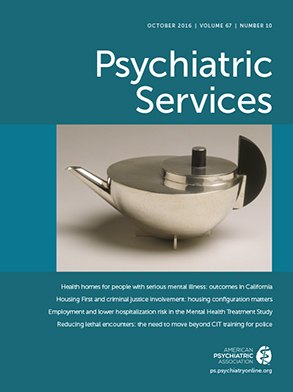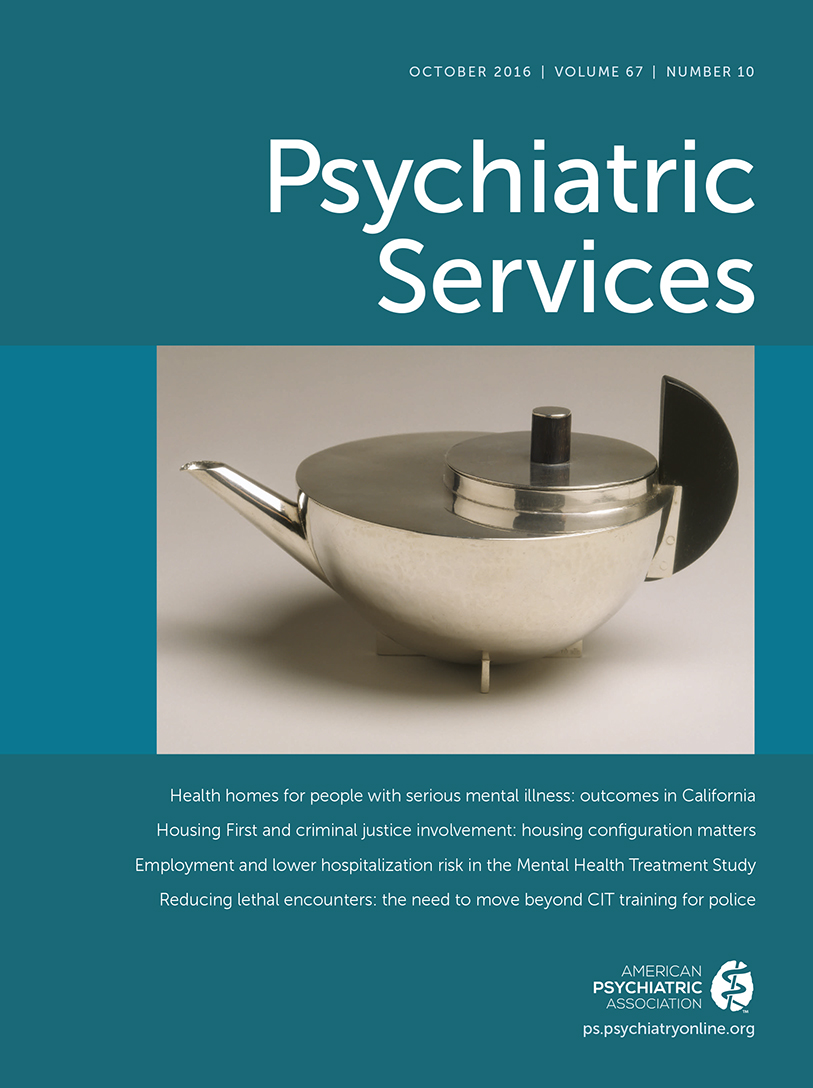Permanent supportive housing (PSH) for chronically homeless individuals has proliferated in recent years. However, availability of PSH remains limited by costs associated with rental subsidies, resulting in extensive waiting lists for individuals with urgent housing needs. Fortunately, homelessness service providers are focusing efforts on enhancing individuals’ economic stability, thereby expanding housing options to both PSH and the mainstream market. One such service model was the Pathways to Independence (PTI) program, funded by the Substance Abuse and Mental Health Services Administration and delivered by a homelessness service provider in New Haven, Connecticut, to chronically homeless individuals. Of the 203 participants housed during the 2011–2014 grant period, 144 received subsidies and 59 were housed by their own income.
PTI involved staff specialists in three primary areas: housing, employment, and Social Security income entitlements. Their education and experience were akin to generalist case managers. However, the specialist positions allowed staff to achieve a depth of expertise in their area and stimulated creativity to solve housing barriers among program participants. One such barrier was the limited availability of both PSH and affordable housing options, which prevented participants from rapidly exiting homelessness. Even those in competitive employment and recipients of disability benefits did not have adequate income to afford most mainstream apartments. The fair market rent for a one-bedroom apartment in New Haven was $980, whereas the average monthly income of PTI participants was $853. The PTI team sought to address this barrier by developing a shared housing approach. Shared housing was pursued only for those expressing interest; the remainder were supported in exploring other housing options.
The PTI housing specialist fostered the transition into multibedroom apartments with others with lived experience of homelessness. Meetings were facilitated so participants could choose roommates. Participants engaged in six weekly group meetings: housing search and finances, establishing house rules and expectations, community building skills (communication and problem solving), addressing individual concerns, addressing communal concerns, and empowerment (lessor-lessee laws and self-advocacy). Rental property owners often had difficulty renting multibedroom apartments, giving the housing specialist leverage to negotiate rent, utilities, and lease terms. Tenants were provided six-month leases to limit chance of eviction or loss of security deposit if the living arrangement was unsuccessful.
Eleven PTI participants housed without a subsidy were housed with roommates. Seven received disability income, and four earned income from employment. Participants in shared housing had an average monthly income of $797, and the average rent was $366. Nine participants were housed within six months of PTI enrollment, including the four who were connected with employment through the PTI employment specialist. The remaining two participants were housed 15–18 months after enrollment, delayed partly to await approval of disability benefits. Tenants described positive experiences of mutual support and felt they could share resources (cleaning supplies and food staples) with roommates to reduce financial stress.
Participants maintained PTI support services until program completion and continued to receive case management through the homelessness service provider—a level of support similar to that in PSH. Indeed, the necessity for support services for individuals with disabling conditions who have been homeless cannot be understated. Providers must be capable of helping individuals navigate the challenges of shared mainstream housing, including roommate dynamics and disruptions in employment or other sources of income that may increase one’s risk of homelessness.
Although the approach described here occurred in the context of a grant-funded, integrated program, it is likely replicable in a range of homelessness service settings. The structure of the PTI team was innovative, but the PTI housing specialist used skills and resources that housing specialists and case managers generally possess, such as housing search and placement and cultivating a network of rental property owners—all of which were central to this approach. Thus implementation without a housing specialist or integrated employment or entitlement services may be possible. For example, case management teams could collaborate to identify and engage participants with incomes who may be interested in shared living. The housing effort could be divided among case managers, one managing lessor-lessee negotiations and another delivering a curriculum.
Shared housing is not necessarily a novel concept in homelessness services. Despite the promise of shared housing as an independently affordable rapid rehousing option, there is a dearth of discussion in the homelessness services literature on its implementation and effectiveness. Ongoing development of roommate models accompanied by rigorous research is merited to expand housing options and promote housing choice among individuals with extensive homelessness histories.

